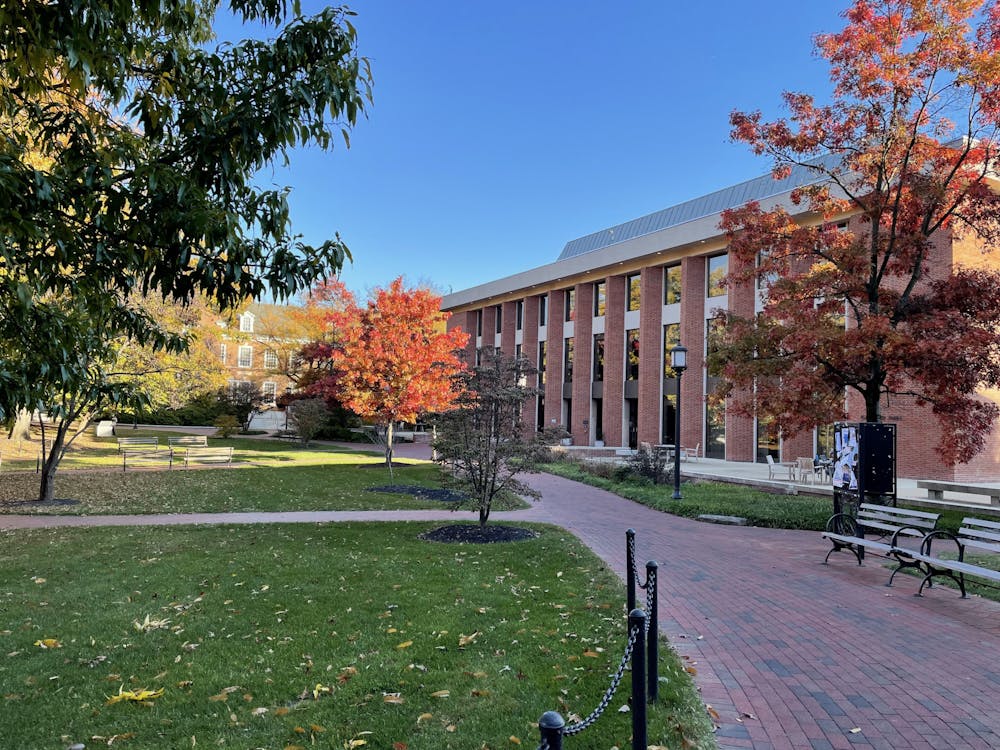After an investigation launched in the wake of an alleged intentional drugging incident, the University announced the suspension of the Sigma Phi Epsilon fraternity through the spring of 2025 in an email to affiliates on Jan. 27. According to the email, the group’s suspension did not result from the finding of a violation of the University’s policy regarding intentional drugging, but from other violations revealed in the Office of Student Conduct’s investigation.
The email sent to Hopkins affiliates did not explain the violations Sigma Phi Epsilon was suspended for, but included a link to the University’s list. These violations include:
- Physical or emotional abuse
- Underage possession, distribution or consumption of alcohol
- Hosting a gathering in violation of University guidelines
- Failing to comply with University directives or disciplinary actions
- Failing to comply with University procedure and violation of hazing policy
The University has designated Sigma Phi Epsilon as an inactive/closed chapter on the Office of Fraternity and Sorority Life website. Members of Sigma Phi Epsilon and the Interfraternity Council at Hopkins did not respond to The News-Letter’s requests for comments.
Vice Provost for Student Health and Well-Being and Interim Vice Provost for Student Affairs Kevin G. Shollenberger explained that the Office of Student Conduct did not find evidence that would substantiate a violation of the University’s policy regarding intentional drugging.
In an email to The News-Letter, Vice President for Communications Andrew Green clarified that the Student Conduct Board uses a preponderance of evidence standard in their decisions. He was unable to comment on whether the Student Conduct Board found any evidence of intentional drugging within Sigma Phi Epsilon.
Sophomore Nicole Wykes told the The News-Letter that she finds University policies regarding intentional drugging confusing.
“There are things for when someone has been sexually assaulted or has been hazed or even for intentional drug use,“ she said. “But there is nothing that I saw about being given drugs against your will, without consent.”
Green emphasized that intentional drugging is considered a violation of the Student Conduct Code in his email to The News-Letter.
In an email to The News-Letter, sophomore Annabelle Alpar expressed concern over how the University’s Sexual Misconduct Policies and Procedures defines misconduct that is not considered sexual in nature.
“Such vague language fails to properly hold students accountable and creates potential loopholes in which students can try to argue their way out of misconduct that is not covered under this policy,” Alpar wrote.
The investigation into Sigma Phi Epsilon has been under heavy scrutiny ever since the University faced criticism for its language in its email broadcast informing affiliates of the alleged intentional drugging; Instead of condemning the actions of the alleged perpetrator, the email provided safety tips to prevent students from being victims. Students gathered at the Not My Campus protest held on Nov. 8 to show support for victims of sexual assault and called for greater action from the University.
According to Shollenberger’s email to the University community, the national office of Sigma Phi Epsilon also investigated the chapter following Oct. 30, and found violations of its alcohol policies. Shollenberger stated that the national office announced the closure of the Hopkins chapter, Maryland Alpha, and the residence located at 2900 Wyman Pky, effective immediately.
Information regarding the investigations is not available on the national Sigma Phi Epsilon website, but the Hopkins chapter is no longer listed as an active chapter.
In his most recent email, Shollenberger encouraged students to use resources provided by Student Affairs and Student Well-Being, including Student Outreach and Support, the Center for Health Education and Well-Being (CHEW) and several emotional and mental well-being resources.
Student Outreach and Support is available for appointments and can be contacted at (410) 516-7857 or at studentoutreach@jhu.edu.
CHEW is available for in-person or virtual meetings by appointment and can be contacted at jhuchew@jhu.edu or by phone at (410) 516-8396. CHEW offices are located in the Ralph S. O’Connor Center for Recreation and Well-Being. Students who have faced or have questions related to sexual misconduct can call (410) 516-5133 to speak with a confidential counselor.
Students seeking support or wishing to speak with a confidential counselor about sexual assault can call the Sexual Assault Help Line at (410) 516-7333. Students who may be affected by or know someone affected by sexual assault can also contact the Sexual Assault Resource Unit’s support line at (410) 516-7887 or at jhusaru@gmail.com.
Min-Seo Kim contributed reporting to this article.





